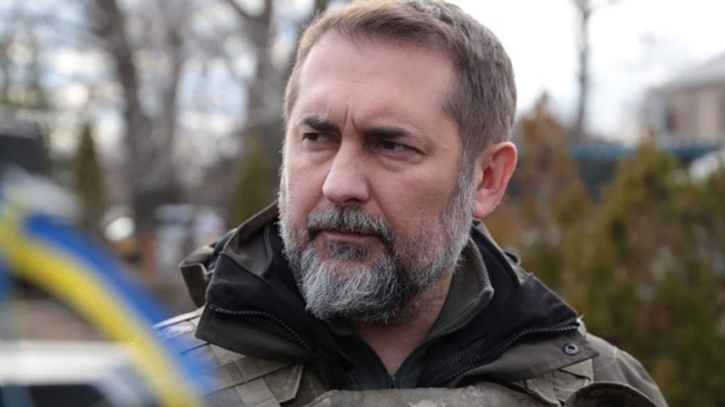Russia's Wagner mercenaries target in hotel attack: governor

Members of Russia’s mercenary Wagner Group have reportedly been killed following an attack by Ukraine’s armed forces on a hotel where many were based in a town in the Russian-occupied Luhansk region, according to the region’s Ukrainian governor, Al Jazeera reports.
Luhansk’s exiled Governor Serhiy Haidai said in an interview with Ukrainian television on Sunday that Ukraine had launched a strike on a hotel in the city of Kadiivka, west of the region’s main centre of Luhansk. Photos posted on Telegram channels showed a building largely reduced to rubble.
“They had a little pop there, just where Wagner headquarters was located,” Haidai said.
“A huge number of those who were there died,” he said.
A section of Ukrainian media quoted local officials as saying the hotel had been closed for some time, while Russian state news agency TASS said on its Telegram channel that a hotel in Stakhanov – the Russian name for Kadiivka – was destroyed by a Ukrainian HIMARS missile attack and rescue workers were clearing rubble, according to a local official.
Haidai did not give casualty figures, but he said those who survived the attack faced inadequate medical services to treat them.
“I am sure that at least 50% of those who managed to survive will die before they get medical care,” he said. “This is because even in our Luhansk region, they have stolen equipment.”
Haidai has previously reported strikes by Ukrainian forces on other targets in Luhansk region, including on the Wagner headquarters in the town of Popasna in August.
The Wagner Group – a brutal fighting force of mercenaries with the goal of furthering Russia’s military interests around the world – operates in Ukraine, Syria, Libya, the Central African Republic, and Mali and has been accused of numerous rights violations, including torture and killings.
Controlled by Yevgeny Prigozhin, a close ally of Russian President Vladimir Putin, Wagner opened its first official headquarters in the Russian city of Saint Petersburg in early November.
The European Union has accused Wagner, whose members are mostly former service personnel, of human rights abuses and the United States and EU have sanctioned Prigozhin over his role in the group. In 2021, the EU said the Wagner Group was responsible for abuses, including torture and extrajudicial killings.
On Sunday, the body of 23-year-old Zambian student Lemekani Nyirenda, who died while fighting for Wagner in Ukraine, arrived at Kenneth Kaunda International Airport in the capital, Lusaka.
Nyirenda was studying nuclear engineering in Russia when he was convicted of drug offences in April 2020 and sentenced to nine years in prison. He was later pardoned through a special amnesty on the condition that he participate in the war in Ukraine and was killed while fighting.
In November, Wagner chief Prigozhin admitted he recruited Nyirenda from prison, claiming the Zambian willingly went to fight against Ukraine.
Zambian Foreign Minister Stanley Kakubo said on Friday that Russia’s Foreign Affairs Minister Sergey Lavrov told him by telephone that Nyirenda was pardoned on August 23, 2022, to allow him to join the military.
“We were informed that Russia allows for prisoners to be provided an opportunity for pardon in exchange for participation in the special military operation,” Kakubo said, using Russia’s description of the invasion of Ukraine.
According to Nyirenda’s father, his son had been serving a nine-year jail sentence on the outskirts of Moscow for a drug offence when he was “conscripted” to fight.
Russia has also informed Zambia that money owed to Nyirenda by Wagner, together with all the documentation relating to his amnesty, recruitment and death, would be handed to a Zambian representative who would accompany the body, the minister said.
Zambia will work to ensure that nothing like this happens again to a Zambian studying in Russia and that there are no other Zambians in Russian prisons, said Kakubo.
.png)




